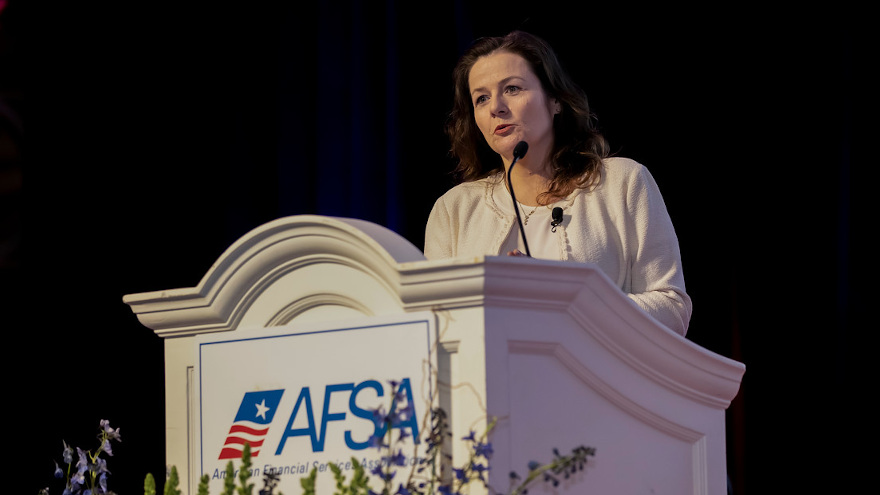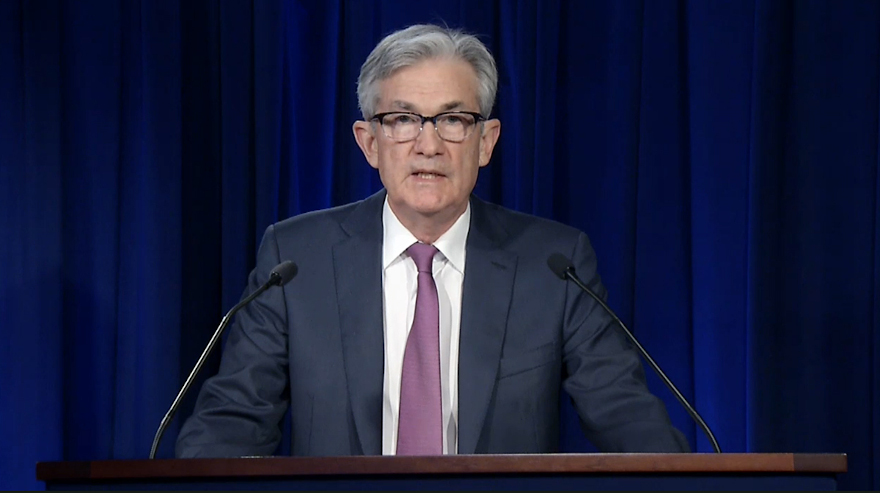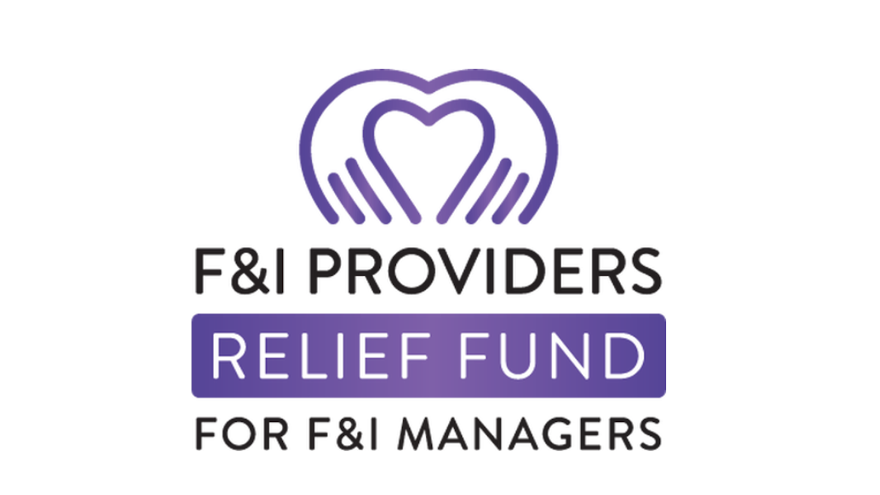A variety of regulatory developments within financial services arrived this week, ranging from a federal judge siding with a national collections organization, the Consumer Financial Protection Bureau offering guidance involving federal assistance for small businesses as well as the Federal Trade Commission delivering a report to Congress about its ongoing efforts associated with credit-report disputes.
Our roundup begins with ACA International announcing on Wednesday that Judge Richard Stearns of the Federal District Court of Massachusetts granted its motion for a temporary restraining order and preliminary injunction in a lawsuit challenging Massachusetts Attorney General Maura Healey’s emergency order that stops outbound collections calls for 90 days.
“ACA will evaluate the decision to determine the immediate effect of the court’s preliminary injunction order,” ACA said in an online post about the development connected to the regulation that has been in effect since March 26.
To recap, Healey’s emergency regulation prohibited creditors from engaging in methods of debt collection that can require people to leave their homes or have in-person contact, including filing new lawsuits against Massachusetts consumers, visiting their homes or places of work, or repossessing their vehicle, among other protections. The AG’s emergency regulation also prohibited debt collection agencies and debt buyers from making unsolicited debt collection telephone calls to consumers.
Healey’s emergency regulation was to remain in effect for 90 days or until the conclusion of the declared state of emergency.
The AG’s emergency debt collection regulation contained protections that apply to all creditors and prohibits them from “deceptive practices” in pursuing the payment of debt during the COVID-19 emergency, including:
— Filing any new collection lawsuit
— Garnishing wages, earnings, properties or funds
— Repossessing vehicles
— Applying for or serving a capias warrant
— Visiting or threatening to visit the household of a debtor
— Visiting or threatening to visit the place of employment of a debtor
— Confronting or communicating in person with a debtor regarding the collection of a debt in any public place
The AG’s emergency debt collection regulation also prohibits debt collection agencies and debt buyers from making unsolicited debt collection telephone calls to Massachusetts consumers for the next 90 days, unless the state of emergency ends before that time.
“The COVID-19 crisis has caused substantial medical and financial hardship for families in Massachusetts, and we want to do everything we can to protect them from further harm,” AG Healey said in a news release posted on March 27. “This emergency regulation puts additional restrictions in place to prevent debt collectors and creditors from harassing our residents.”
Stearns closed his 29-page order that ACA International made available here by summarizing reasons for his decision.
“Given the plethora of protection provided to debtors by the laws and regulations the court has previously cited, the interest a debtor may have in the regulation may not weigh as heavily as the threat of extinction faced by smaller collection agencies who have been effectively put out of business,” the order said. “Of perhaps greater concern is the impact the Regulation may have on hospitals and utilities who depend on collection agencies to remain solvent.
“Finally, the court recognizes the argument advanced by ACA that a capitalist society has a vested interest in the efficient functioning of the credit market which depends in no small degree on the ability to collect debts,” the order went on to say.
CFPB on PPP guidance
Also arriving this week, the Consumer Financial Protection Bureau issued clarifying FAQs to support small businesses that have applied for a loan from their financial institution under the Small Business Administration’s (SBA) Paycheck Protection Program (PPP).
The bureau explained creditors are generally required under the Equal Credit Opportunity Act and Regulation B to notify applicants within 30 days of receiving a “completed application” of the creditor’s approval, counteroffer, denial or other adverse notice regarding the application.
Officials pointed out Regulation B notifications of action taken are designed to help consumers and businesses by providing transparency to the credit underwriting process in a timely manner. They added information that is generally included in a complete application includes any approvals or reports by governmental agencies or others who can guarantee, insure, or provide security for the credit or collateral.
In its FAQs, the CFPB said it clarifies that a PPP application is only a “completed application” once the creditor has received a loan number from the SBA or a response about the availability of funds.
“This ensures that the time awaiting this information from the SBA does not count towards the 30-day notice requirement, and that applications will therefore not ‘time out’ during the process,” the bureau said.
The CFPB went on to mention the FAQs also make clear that if the creditor denies an application without ever sending the application to the SBA, the creditor must give notice of this adverse action within 30 days.
“It further clarifies that a creditor cannot deny a loan application based on incompleteness where the creditor has enough information for a credit decision but has yet to receive a loan number or response about the availability of funds from the SBA,” officials said.
FTC on credit reports
The regulatory developments this week also included the Federal Trade Commission submitting a report to Congress updating lawmakers on the agency’s efforts to educate consumers about their rights to dispute and correct errors in their credit reports.
The commission indicated lawmakers requested the report available here as part of the fiscal year 2020 spending bill that funds the FTC and other federal agencies.
Under the Fair Credit Reporting Act (FCRA), the FTC explained consumer reporting agencies must have reasonable procedures to ensure the accuracy of consumers’ reports and give consumers the ability to dispute and correct errors.
Officials pointed out consumer reports are used to determine a consumer’s eligibility for credit, insurance, housing, employment, and other benefits. Errors in consumer reports can cause consumers to be denied credit or other benefits, or pay a higher price for them.
The FTC said it continues to look for education and enforcement opportunities around the issue of consumer report accuracy and disputes.
Last December, the FTC hosted a public workshop, jointly with the CFPB, regarding issues affecting the accuracy of both traditional credit reports and employment and tenant background screening reports.
Officials recapped the workshop brought together stakeholders — including industry representatives, consumer advocates and regulators — for a wide-ranging public discussion on the many issues that affect the accuracy of consumer reports. Their goal in co-hosting this workshop was to further educate itself on recent trends in consumer reporting accuracy, including:
— Current practices of furnishers of information and compliance with accuracy requirements
— Current accuracy topics for traditional credit reporting agencies
— Accuracy considerations for background screening
— Navigating the dispute process
Dasceq gathered a variety of recent data points about how collections and call-center activities have evolved during the coronavirus pandemic.
The company’s vice president of sales Randy Spradlin joined senior editor Nick Zulovich for this episode of the podcast to discuss that information, as well as the most important collection trends to watch as the crisis subsides.
To listen to this episode, click on the link available below, or visit the Auto Remarketing Podcast page.
Download and subscribe to the Auto Remarketing Podcast on iTunes or on Google Play.
Viewed through the prism of the U.S. auto asset-backed securities (ABS) market, S&P Global Ratings generated a report examining the depth and potential impact of extensions of vehicle installment contracts because of the COVID-19 pandemic.
According to a report based on the firm’s watch of securitizations, S&P Global Ratings computed that extensions on a dollar basis in the prime segment for March equaled 3.94% of outstanding contracts as of the beginning of the month — 12 times February’s level of 0.33%.
In the subprime space, extensions more than quadrupled to 6.82% in from 1.53% in February, according to the report titled, SF Credit Brief: While Stay-At-Home Orders Clear Traffic, U.S. Auto Loan Extensions Rise.
“While the average level of deferrals in subprime pools are higher than their prime counterparts, extensions in prime pools are as high as subprime pools in some cases,” analysts said.
“It’s hard to conclude too much though from one month of performance,” analysts continued. “Further, the banks and captive finance companies may be more highly motivated to offer extensions to their customer base due to the seemingly stronger credit quality of their obligors as well as the lenders’ desire to maintain customer loyalty.
“In addition, given the higher annual percentage rates (APRs) on subprime auto loans, it may be more prudent for those customers to make the payments when due if possible rather than extend the loan and have large amounts owing at the end of the loan term due to accrued interest,” S&P Global Ratings went on to say.
Analysts also discovered Nevada and Florida have the highest extension levels in both the prime and subprime segments.
In prime, S&P Global Ratings found that approximately 8% and 7% of these contracts in Nevada and Florida, respectively, were extended in March. In subprime, approximately 11% and 10% of the contracts in these two states, respectively, were extended.
The firm pointed out that in Nevada, the leisure and hospitality industry (including casinos) directly employs one-in-four workers in the state, and the casinos have been closed since mid-March.
“In our view, extensions will likely remain high for at least the next two-to-three months due to high unemployment levels, and lenders preferring to work with their customers rather than trying to repossess and sell vehicles into a depressed and only partially functioning used vehicle wholesale market,” analysts said.
“Further, many states have imposed restrictions on collection efforts to a greater or lesser extent, and banned repossessions and the garnishment of CARES Act payments while their state is under a state-of-emergency,” they added.
S&P Global Ratings closed its report with this assessment.
“We believe these extensions, by themselves, will not lead to timely interest payment defaults on S&P Global Ratings-rated auto loan ABS transactions due to significant liquidity in those transactions, including reserve accounts, the ability to use principal collections to pay bond interest and conservative assumptions used when setting legal final maturities,” analysts said.
“In the coming months, we will be monitoring extensions and other performance variables on outstanding auto loan ABS transactions and will be taking rating actions as deemed appropriate,” they went on to say.
For more details about specific finance companies, the report can be viewed here.
Based on daily consumer survey information now made available by Experian, Americans appear to be in a better position to maintain their auto-finance payments over other financial commitments like credit cards or a housing obligation through a mortgage or rent.
According to Experian, 43% of Americans have a vehicle payment they’re scheduled to make monthly. When SubPrime Auto Finance News examined this data dashboard on Monday morning, Experian reported that 16% of Americans either will have difficulty or cannot make their payments this month.
Experian went on to report that 20% of Americans are considering a vehicle purchase “in the next few months.” Of that figure pondering a purchase, Experian indicated:
— Forty-eight percent will continue with the purchase as planned.
— Thirty-four percent will purchase a vehicle less expensive than planned.
— Twenty percent will consider leasing instead.
— Twenty-four percent will delay the purchase by a few months.
— Nine percent have put the purchase on hold indefinitely.
“COVID-19 has created a fluid situation for many Americans, and it’s important for those within the automotive industry to understand the challenges that people are facing and how they’re handling them,” Experian senior director of automotive financial solutions Melinda Zabritski said in a statement to SubPrime Auto Finance News.
“With consumers more keenly aware of their financial health and situation, we may see people continue to explore all vehicle options available to them,” Zabritski continued. “Industry professionals need to stay on top of these trends, and find ways to help car shoppers best address their needs.”
Meanwhile, the Experian data dashboard also showed 46% of Americans are currently experiencing financial hardship. The data offering also indicated 35% of Americans either can’t or are having difficulty paying rent, a mortgage payment or credit card obligations.
While Experian’s data showed 50% of Americans have a financial reserve to tap, 23% of Americans are expecting their financial situation to be worse next month.
All of this information can via a new initiative Experian rolled out in April.
In an effort to help essential organizations, such as government agencies, healthcare providers and non-governmental organizations, Experian is seeking to provide resources to those most in need during the COVID-19 pandemic, which leverage its data assets to identify groups of individuals that are most likely to be impacted.
Experian highlighted these new privacy-compliant segments, offered free of charge, are designed to help these organizations find and communicate with at-risk populations, enabling them to deliver essential services as quickly as possible.
“With so many lives upended and millions across the country struggling to adapt to our new reality, if we can help even one person, we will be proud to have done so,” said Genevieve Juillard, Experian’s president of targeting and data quality services. “Experian has an unwavering commitment to help consumers and businesses during this time. We believe data and technology can help address some of the challenges facing our communities and society.
“The more easily essential organizations can identify those most in need, the more quickly they can be taken care of,” Juillard continued in a news release.
Experian is also providing its clients free access to research insights around shifting consumer sentiment as a result of COVID-19. Based on permissioned consumer survey data, Experian explained the dashboard is updated daily and representative of U.S. consumers across all regions and demographics. It can provide businesses a deeper understanding of how consumers are being impacted by the pandemic and how that is changing their behaviors across four key industries, including automotive, financial services, healthcare, and retail, as well as their media consumption habits.
“The pandemic has and will impact various segments of the population differently — it will vary by age demographic, as well as region,” Experian said. “Businesses can leverage the dashboard to gain insight into consumer sentiment across generations and regions to respond to shifts in consumer behavior as it changes.
“The more businesses can understand how consumers are dealing with the fallout of the outbreak, the better positioned they will be to communicate with them and serve their needs,” Experian went on to say.
The dashboard can be viewed by first going to this website.
Those “well-qualified buyers” certainly appeared to take advantage of the generous financing terms captives offered in April based on the information shared by Edmunds on Friday morning.
Edmunds reported that zero-percent finance deals surged to a record level in April as automakers “pulled out all the stops” to encourage new vehicle purchases during the coronavirus crisis.
Meanwhile, Edmunds noticed that the average rate for used-vehicle financing actually edged a tick higher year-over-year.
According to an Edmunds news release, zero-percent finance deals accounted for 25.8% of financed new-vehicle purchases in April, compared to 4.7% in March and 3.6% in February. This is the highest level of zero-percent finance deals that Edmunds has on record dating back to 2004.
Edmunds analysts pointed to the abundance of zero-percent finance deals as the driving force behind a significant drop in interest rates. The annual percentage rate (APR) on new financed vehicles averaged 4.3% in April, compared to 5.8% in March and 6.3% a year ago. This marks the lowest average APR since August 2015.
“It’s a buyer's market,” said Jessica Caldwell, Edmunds’ executive director of insights. “And while there aren't a lot of buyers right now, those in a position to purchase a new vehicle are taking advantage of the most generous financing programs we've seen this century.”
Edmunds experts warn that some consumers might be making riskier purchasing decisions due to the greater availability of zero-percent, 84-month term contracts.
According to Edmunds data, the average term length hit a record high of 73 months in April, and 81% of vehicle buyers who financed their vehicle agreed to a loan term between 67 and 84 months.
Edmunds data also reveals that consumers are stretching their budgets for more expensive vehicle purchases — the average amount financed for a new vehicle climbed to a record high of $37,681 in April, while the average down payment dropped to $3,159 in April, a 21% decline compared to March and the lowest on record since July 2011.
“For the fiscally responsible buyer, this is a great deal, but for others, this could spell trouble,” Caldwell said. “Although longer loan terms help make financing larger purchases more palatable, consumers who opt into these deals put themselves at higher risk for negative equity further down the road.”
Similar new-model pricing trends arrived from ALG and Kelley Blue Book on Friday morning, too.
ALG, a subsidiary of TrueCar, projected average transaction prices (ATP) to be up 5.7% or $1,986 from a year ago and up 2.0% or $713 from March.
“Despite our expectation that retail sales volume will be cut in half in April due to the impact from COVID-19, average transaction prices continued their upward trajectory, hitting record highs this month,” said Eric Lyman, chief industry analyst for ALG, a subsidiary of TrueCar. “This is primarily due to the enticing zero-percent interest rates being offered by automakers offsetting any model or trim concessions car buyers would be forced to make otherwise.
“These loans have been particularly popular with domestic truck shoppers,” Lyman continued in another news release. “U.S. manufacturers, such as Ford and GM, and their captive finance companies were one of the first to launch zero-percent interest rates on 84-month loans and those brands are seeing some of the sharpest upticks in average transaction price year-over-year. That said, Hyundai had the biggest year-over-year gain in average transaction price, with a 12.8% increase. This is mainly due to the redesigned Sonata and the widely popular, three-row, Palisade.”
Over at Kelley Blue Book, valuation analysts reported the estimated average transaction price for a light vehicle in the United States was $38,060 in April. New-vehicle prices increased $763 or 2.0% from last April, while prices dropped $102 (down 0.3%) from the previous month.
“Although auto sales are expected to drop more than 50% in April, average transaction prices held steady from the earlier months of the year and rose by 2% year-over-year, likely helped by the abundant incentive offers enacted by automakers and finance companies in March of this year,” Kelley Blue Book analyst Tim Fleming said. “We observed a bit of a shift in the data this month as more price conscious segments increased more than normal.
“Car segments that were flat earlier this year showed increases across the board in April. At the same time, luxury segments took a dive, down nearly $1,500 from this time last year, as buyers shied away from these fast-depreciating models,” Fleming went on to say in another release.
New-Car Finance Data
|
|
April 2020
|
April 2019
|
April 2015
|
|
Term
|
73.4
|
69.4
|
67.8
|
|
Monthly Payment
|
$584
|
$553
|
$490
|
|
Amount Financed
|
$37,681
|
$31,914
|
$28,738
|
|
APR
|
4.3%
|
6.3%
|
4.8%
|
|
Down Payment
|
$3,159
|
$4,383
|
$3,425
|
Used-Car Finance Data
|
|
April 2020
|
April 2019
|
April 2015
|
|
Term
|
68.4
|
67.4
|
66.2
|
|
Monthly Payment
|
$426
|
$411
|
$380
|
|
Amount Financed
|
$23,307
|
$22,034
|
$20,707
|
|
APR
|
8.9%
|
8.8%
|
7.8%
|
|
Down Payment
|
$2,522
|
$2,742
|
$2,362
|
Source: Edmunds
The U.S. Department of Labor reported on Thursday morning that another 3,839,000 workers filed initial claims for unemployment benefits last week, lifting the six-week total to above 30 million individuals because of COVID-19.
The figure likely adds more challenges to any tenuous improvement in vehicle sales as well as a recovery for the general economy.
“As states begin the process of reopening and Americans return to work, today’s unemployment report reflects once again the hardship caused by the coronavirus pandemic,” Secretary of Labor Eugene Scalia said in a statement. “The president’s actions and policies will continue to support American workers during this crisis. All 50 states are now delivering the $600 additional weekly unemployment benefit provided by the CARES Act. The department has disbursed more than three-quarters of a billion dollars to states to help them deliver this relief as quickly as possible as Americans follow the guidance of public health officials to ‘slow the spread.’
“Looking ahead, as workplaces reopen, we must ensure that individuals transition from unemployment back into the workforce,” Scalia continued. “Key to this process will be workplace safety. The Occupational Safety and Health Administration has been at the forefront of workplace safety since January, delivering important resources and guidance to businesses to help them keep workers safe, and investigating and responding to worker complaints.”
Unless employees have been able to work from home during the crisis, workers likely need a vehicle to get to their job. And those individuals still gainfully employed haven’t been rushing to dealerships and taking out financing to acquire a vehicle.
“April is likely the bottom for auto sales, so hopefully there’s only room for improvement from here,” Edmunds’ executive director of insights Jessica Caldwell said in a news release distributed soon after Thursday’s unemployment report.
“But with employment and consumer confidence at new lows, the question remains: Will people be in the position to purchase new cars? Although automakers are doing their part by offering landmark incentives, those might not be enough if consumers cannot recover financially from this crisis,” Caldwell said.
And as if the unemployment figure wasn’t already bleak, U.S. economic growth shrank by 4.8% in the first quarter, according to the Commerce Department’s initial estimate released on Wednesday. National Association of Federally-Insured Credit Unions chief economist and vice president of research Curt Long noted the release is the “first preview into the economic effects” of the coronavirus pandemic, which are expected to be more prevalent in the second quarter.
“We are undoubtedly in a recession now, and although it may begin to ease up as some states open limited parts of their economies, it is unlikely the economy will truly get back on its feet for some time,” Long said.
Meanwhile at the Federal Reserve, the Federal Open Market Committee (FOMC) voted unanimously to leave interest rates unchanged. In his usual press conference following each policymaker meeting, chair Jerome Powell acknowledged the financial challenges businesses and individuals now are facing.
“The forceful measures that we as a country are taking to control the spread of the virus have brought much of the economy to an abrupt halt. Many businesses have closed, people have been asked to stay home, and basic social interactions are greatly curtailed. People are putting their lives and livelihoods on hold, at significant economic and personal cost. All of us are affected, but the burdens are falling most heavily on those least able to carry them. It is worth remembering that the measures we are taking to contain the virus represent an investment in our individual and collective health. As a society, we should do everything we can to provide relief to those who are suffering for the public good,” Powell said in his opening statement.
“At the Fed, we are doing all we can to help American families and businesses weather this difficult period. When the spread of the virus is under control, businesses will reopen, and people will come back to work. We will continue to use our tools to assure that the recovery, when it comes, will be as robust as possible,” Powell went on to say.
Last week, S&P Global Ratings tried to project improvement but analysts said, “Although we expect the drop in economic activity to be sharp but fairly short, the path to recovery remains highly uncertain in its timing and trajectory until an effective treatment or vaccine are in place.”
S&P Global Ratings explained corporate borrowers suffered first from the sudden economic stop and the collapse in oil prices, with a disproportionate effect on those at the lower end of the rating scale and in the most-exposed industries. The firm indicated this development comes after a record number of corporates came to market with first-time ratings in the ‘B’ category in the two to three years leading up to the current situation.
Although its economic forecasts continue to worsen, S&P Global Ratings pointed out that financing conditions have been gradually improving, bolstered in particular by the Federal Reserve’s historic liquidity facilities, pushing March corporate bond issuance to an all-time monthly high.
“Still, we see more-restrictive lending conditions amid the material contraction in economic activity. Thus far, borrowers with stronger credit quality have been able to largely resume issuing debt, while funding costs remain prohibitively high and access to funding more challenging for weaker borrowers in an environment of collapsing revenues,” the firm said.
“Unprecedented fiscal and monetary support are critical to preserve the economic fabric and well-functioning capital markets, thereby supporting the chances of a stronger path to recovery,” S&P Global Ratings continued. “But it comes at the expense of higher government debt and puts the onus on policy choices in the handling of health issues, the degree and nature of support to the economy, and later on the exit path — all of which will have significant effects on the recovery trajectory.”
With furloughs and layoffs spreading throughout the dealership world because of the coronavirus pandemic, seven top executives at F&I providers banded together to help store finance managers during these challenging times.
This week, a new automotive philanthropy organization — F&I Providers Relief Fund for F&I Managers (F&IPRF) — announced its seven-member board of directors and a $1 million fundraising goal to help professionals in the F&I industry facing hard times.
Founded only two weeks ago by National Auto Care chief executive officer Tony Wanderon, the F&IPRF has brought nearly 20 F&I providers together and has now raised close to $300,000 to provide financial grants exclusively to F&I managers who are dealing with financial hardships due to COVID-19
And that’s just the start. The fund has partnered with Changing Lives Foundation, a 501(c)3 non-profit, to administer and help support this effort. Officials explained this relationship allows F&IPRF donors to categorize their donation as a charitable contribution, and it allows F&IPRF to grant monies on a tax-deductible basis in an effort to make an even greater impact.
F&IPRF also named five members and two alternates to its board of directors to assist in reviewing applications and awarding financial assistance grants. Along with Wanderon, this group of industry leaders includes:
— NAE/NWAN CEO Kelly Price
— StoneEagle CEO Cindy Allen
— VAS president Bill Breindel
— Assurant senior vice president Daniel Lenczner
— EasyCare/GWC Warranty president John Lee
— Houlihan Lokey managing director Craig Tessimond
During its first meeting April 21, the board announced a fundraising goal of $1 million. To accomplish this objective, board members said they will reach out to their own network of colleagues to add to the impressive list of companies that have signed on to help those F&I managers in need.
“I thought of the dramatic impact this is not only having on providers, but the dealers and their F&I employees who have supported our companies and our livelihood for years. They all are facing serious challenges and having to enact layoffs, furloughs or make deep cuts in pay for the F&I managers nationwide,” Wanderon said in an initial email to a group of fellow company leaders in the industry.
“While we are all focused on our companies, I feel that as a group we could make a difference for many F&I families,” he continued.
From that first email, responses started pouring in. Having personally donated $10,000 with a matching contribution from his company, National Auto Care, Wanderon heard back from nearly every company he contacted and raised more than $200,000 in the first couple days, according to a news release.
One of the companies that immediately responded to Wanderon was NAE/NWAN, and Price, who offered to administer the fund under the umbrella of her charity, Changing Lives Foundation.
Price says charitable works are close to her heart and that she was excited to partner with Wanderon on this effort — believed to be the first of its kind in catering specifically to F&I managers.
Thanks to Price and Changing Lives Foundation, the fund quickly established a website where other industry providers can contribute, helping them reach the $1 million goal. The site is also accepting grant applications from F&I managers.
Applications will be reviewed by objective staff members from Changing Lives Foundation before they are submitted for board review. Wanderon and the other board members said they are committed to protecting the anonymity of the applicants, including the concealing of details about their dealership or geographic details to prevent any conflicts.
“We don’t want anyone to be faced with bias if an applicant is the F&I manager in one of the dealerships where they do business. We will make the decisions completely free of bias and based truly on need,” Wanderon said.
The board will award grants up to $2,000 and hopes that as more providers and other leading companies throughout the F&I industry join in the fundraising efforts, F&IPRF will be able to help as many F&I managers and their families as possible.
F&I managers can visit the site to view qualification criteria and apply for grants. F&I providers also can visit the site to contribute to F&IPRF and view a list of the companies that have contributed to the fund so far at www.changinglivesfound.org/fandiprovidersrelieffund.
Two leaders from the American Recovery Association described the “nightmare” the coronavirus pandemic has created for the repossession industry.
Executive director Les McCook and current president Dave Kennedy joined senior editor Nick Zulovich for this special episode of the Auto Remarketing Podcast to discuss one of the automotive industry segments hardest hit by the crisis and with plenty of questions left to answer.
To listen to this episode, click on the link available below, or visit the Auto Remarketing Podcast page.
Download and subscribe to the Auto Remarketing Podcast on iTunes or on Google Play.
Given the unprecedented climate that has taken place resulting from the COVID-19 outbreak and containment efforts, we have received a large number of questions in regard to how this event impacts credit reporting particularly given the recent support from the lending community around payment deferrals, loan modifications, etc. We wanted to share some important resources and guidelines from the Consumer Data Industry Association (CDIA) to help industry professionals navigate through these very important days and weeks ahead.
It is important to remember that the credit reporting industry has long had codes in place to assist consumers impacted by a natural or declared disaster or other financial hardship. The industry strongly encourages lenders and creditors, also known as “data furnishers,” in working with their customers to take full advantage of these codes and report these codes to the credit reporting agencies (CRAs). The leading score modelers, VantageScore and FICO, treat these codes as neutral so there should be no negative scoring impact on consumers who are reported to the CRAs with these codes.
Specific codes apply to certain consumers
There are specific codes linked to certain accounts that are emphasized in any disaster-type situation, such as the current pandemic, and it is important that lenders and creditors understand the distinctions and characteristics for each. For quick reference, customers listed with an account code “58” are affected by a natural disaster, whereas customers with an account code “45” have an account in forbearance.
If lenders report using the recommended FAQ 58 or FAQ 45 guidance and report special comment AW or CP, consumers’ credit scores may be affected differently.
Forbearance versus deferred payment
The country’s leading score developers, VantageScore and FICO, note that forbearance and deferred payment scenarios have a neutral impact on a consumer’s credit score so consumers in one of these programs, as reported to the nationwide credit bureaus, should have no negative impact as a result of coronavirus.
FICO noted: “(1) FICO should not be speaking for VantageScore, and (2) codes impact the delinquency and not necessarily other reported data as it pertains to VantageScore models. Essentially when a lender or servicer adds a disaster code on an account, it sends an alert that you might have been impacted by a natural disaster or an equivalent situation like the current pandemic. VantageScore models 3.0 or 4.0 will not take into account any current or previously missed payments while the natural disaster code is in effect. Your balance and credit limit associated with such accounts may, however, continue to impact your credit score depending on how the account is reported by your lender/servicer.’”
CARES Act Relief for automotive
In addition, the automotive industry is hoping to benefit from an additional relief package from the government, known as the Coronavirus Aid, Relief, and Economic Security (CARES) Act, which allows businesses with 500 or fewer employees to apply for a Paycheck Protection Program (PPP) or the Economic Injury Disaster Loan Program (EIDL).
Additional program features and benefits include:
• $300 billion in small business interruption loans for paid sick or medical leave, employee salaries, mortgage or rent payments, utilities and any other debt obligations.
• An opportunity for small business borrowers to obtain loan forgiveness equal to their payroll cost and costs related to debt obligations from March 1 through June 30.
• Delaying payment of employer payroll taxes, relaxing limitations on a firm’s use of losses from prior years, and other tax relief to help dealers keep employees on the payroll.
The automotive industry is currently rallying in support of one another to help everyone across the value chain — dealers, lenders, OEMs, and service providers alike. The unexpected circumstances surrounding the current pandemic has forced employees and customers to stay in their homes, drastically reducing showroom traffic and transactions.
Our hope remains to offer as much insight and education as possible to help all parties involved in automotive during these trying times.
Jennifer Reid is vice president – automotive marketing & strategy leader – U.S. information solutions (USIS) at Equifax. With nearly two decades worth of experience in automotive on dealer, lender and information services sides, Reid is responsible for the development of Equifax’s automotive growth strategies, as well as overseeing specific marketing plans and initiatives. This includes understanding competitive automotive industry market dynamics and trends, key customer insights, new product innovations, and pricing and channel strategies.
With so many consumers’ financing in flux because of the coronavirus pandemic, individuals now can examine their credit report more frequently than just once per year.
In a joint action, the three national credit reporting agencies in the United States — Equifax, Experian and TransUnion – said this week that they are offering free weekly credit reports to all Americans for the next year to help them protect their financial health during the sudden and unprecedented hardship caused by COVID-19.
The free reports are available via AnnualCreditReport.com.
The companies’ chief executive officer provided a joint statement on the decision to increase their offerings for the next year. That leadership group included Mark Begor of Equifax, Brian Cassin of Experian and Chris Cartwright of TransUnion.
“These are unprecedented times facing the world. People are feeling scared and uncertain about the future. To help play our part and reduce some of that anxiety, we are uniting as an industry to help people know the facts about their financial data. We are making credit reports more accessible more often so people can better manage their finances and take necessary steps to protect their credit standing,” the CEOs said in a news release.
The bureaus reiterated that consumer credit reports are a factual record of credit activity and payment history used by lenders, creditors, service providers and other businesses to extend financial opportunities and other offers to people.
“Credit reports play an important role in financial health for consumers, businesses and the economy,” the bureaus said.
Equifax, Experian and TransUnion also emphasized that credit vigilance is critical during these uncertain times. They advised consumers to review their credit reports frequently to understand the information that is being reported about their payment behavior.
“The single most important action for consumers who cannot pay their bills right now is to talk with their lenders to find out if they are offering any assistance,” Equifax, Experian and TransUnion said.
The three credit reporting agencies also have worked with their U.S. trade association, Consumer Data Industry Association, to provide guidance to data furnishers on how to support consumer credit reporting during the pandemic.
For additional helpful consumer tips on navigating COVID-19, visit:
● Equifax COVID-19 Credit and Financial Resources Center
● Experian COVID-19 Resources & Credit Education
● TransUnion COVID-19 Support Center












